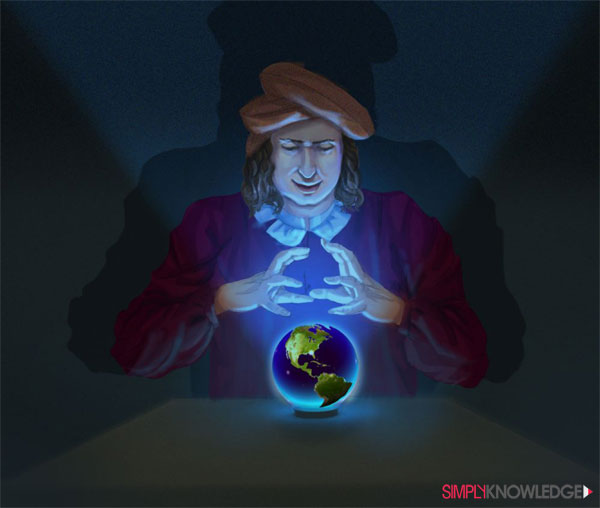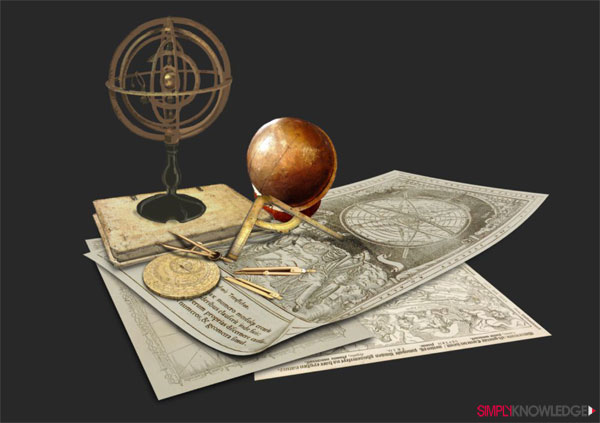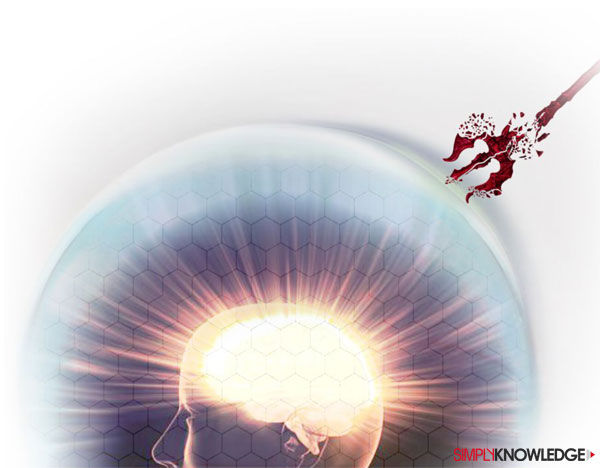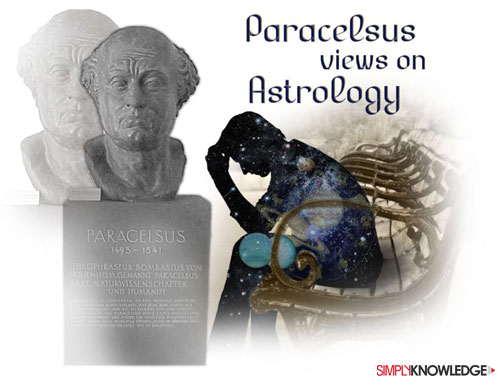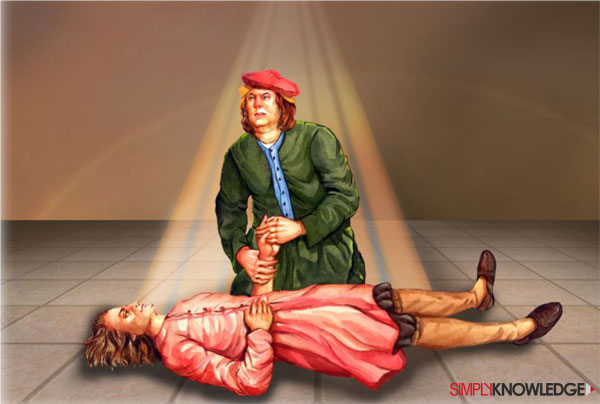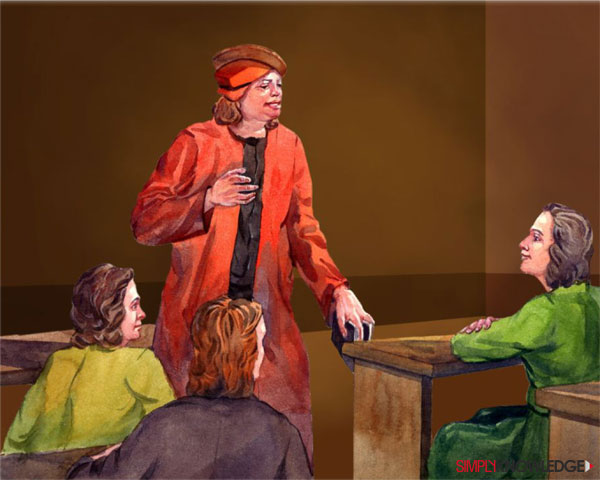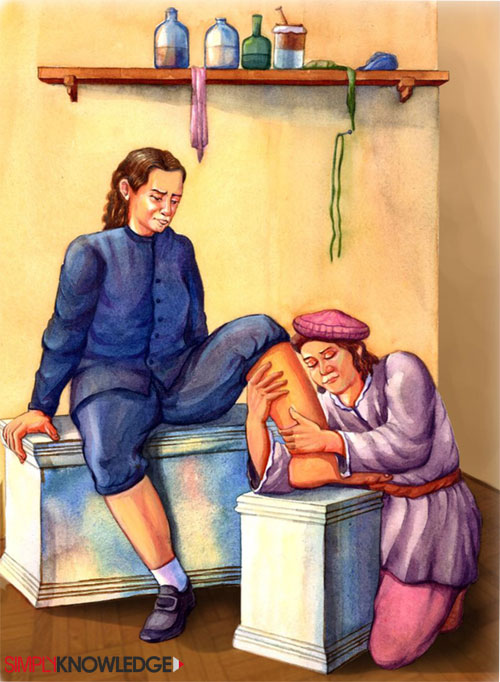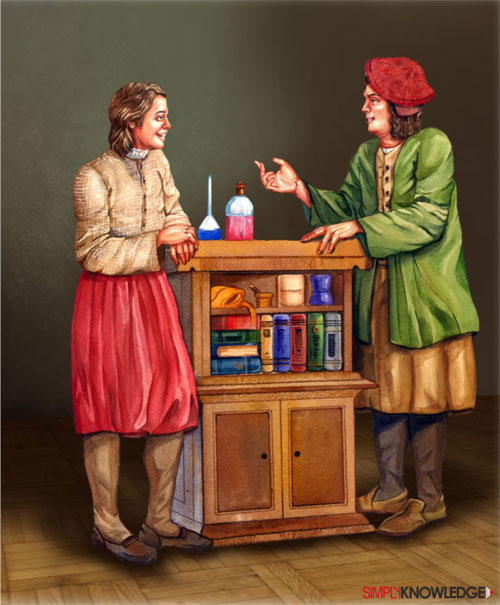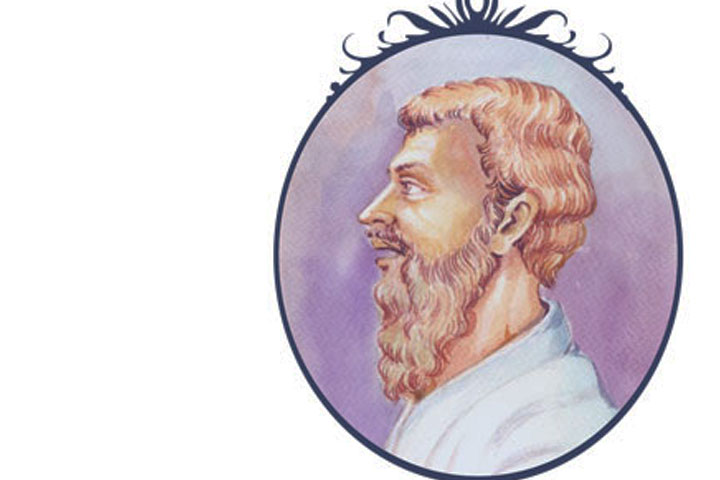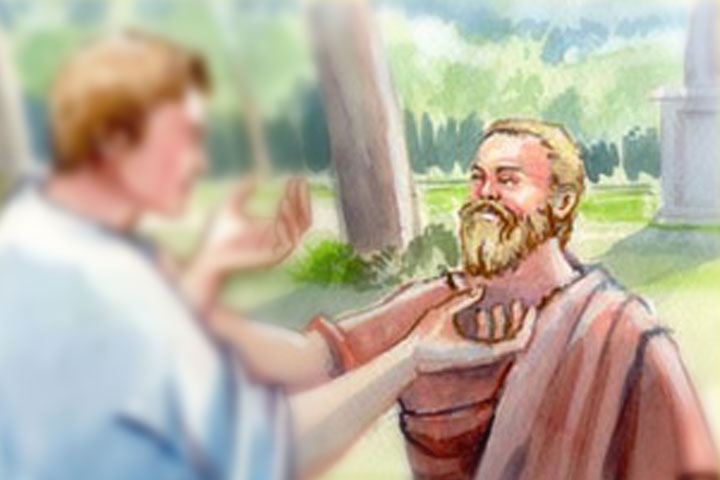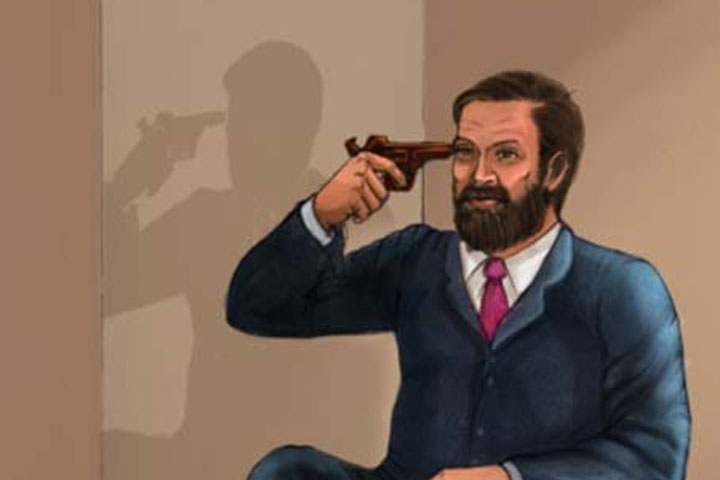
Introduction
This lovely phrase reminds us the enchanting story of ‘Snow White and the Seven Dwarfs’ where the wicked queen peeps into a magical mirror and enquires as to her fairness. As an innocent child I was deeply inspired by the fairytale as the world of fantasy attracted me. I would often question my mother about the availability of such a magical mirror and was disheartened to know that such mirrors did not exist in the real world.
As time flew by, the thoughts of magical mirrors began to fade away from my mind, and with age and maturity, I began to experience highs and lows of life. Sometimes there were colours of happiness and joy and sometimes sorrow and misery. I began to consult astrologers who blamed the adverse situations on the abysmal influence of the planetary positions and would advise me to wear rings, talismans and amulets to ward of the evil effects of the sun, the moon and other planets in our solar system.
But how do these rings, talismans and amulets work? Are they indeed magical, just like the magical mirrors in fairytales? Is it possible to develop them in the real world where we live?
If my answer is in the affirmative, you may call me crazy and brand me superstitious as modern science does not believe in the supernatural powers of the universe. But you will agree with me after reading the life story of a unique man who was a distinguished alchemist, physician, astrologer, magician, and philosopher. So let us fly on a magical carpet into the world of Philippus Aureolus Theophrastus, nicknamed Paracelsus which simply means in par with Celsus. Paracelsus was a Roman encyclopaedist, who wrote ‘De medicina’, one of the oldest documents in western medicine after the Hippocratic writings.
It was Paracelsus who advocated that magical mirrors, rings, amulets can be created and planetary positions can be a cause of worries and happiness. But above all this, as a devout Christian he firmly believed in the supremacy of the almighty and once quoted, “Everything that happens takes place through the will of the supreme and faith into the things of the earth should be based upon the holy teachings of Christ.”
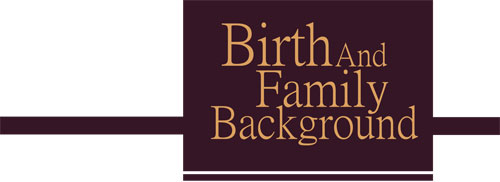
Birth And Family Background
William Bombast of Hohenheim was a distinguished physician who was successfully practicing medicine in a hospital near Maria-Einsiedeln, Switzerland. It was here that he fell in love with the matron of the hospital who some claim was called Elsa, and the two exchanged wedding vows in the year 1492. Their marriage soon blossomed and the couple was blessed with a bonny baby boy on 17th December, 1493, in the vicinity of Maria-Einsiedeln, Switzerland.
William’s happiness knew no bounds and he named his precious bundle of joy as Philippus Aureolus Theophrastus. The proud father’s ambitions were amply reflected in his son’s name; Aureolus was a famous alchemist of the time, and Theophrastus was Aristotle’s successor. However, the joy was short-lived as tragedy struck the Bombast family when young Theophrastus lost the warmth and affection of his mother, who it has been inferred, suffered from manic depression. William was devastated by the loss of his beloved wife but soon gathered courage and began to pull the strings of his life. His sole objective was to nurture his young son and to fill his life with joy and happiness. Young Theophrastus was the apple of William’s eye and both lives began to revolve around each other.

Strong Foundation, The Key To Success
Not much is known about the primary and secondary education received by Theophrastus so we have to move to his adolescent age. As Theophrastus entered into his youth, he received valuable coaching in Science from his father who tutored him with the fundamentals of Alchemy, Surgery and Medicine. His father was not only his teacher but also his mentor, guide and best friend. This golden relationship between the father and the son laid a strong foundation which later on became the key to Theophrastus’ success in the field of Medicine.
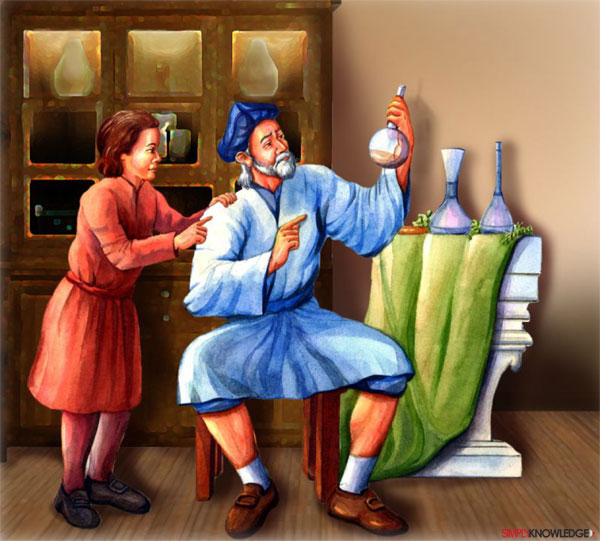
Theophrastus too did not disappoint his father and picked up the nuances of Science with much ease. William was quick to discover that his son had the required potential to become a great physician and decided to get him formal education. He was soon enrolled in a convent of St. Andrew located in the beautiful valley of Savon, Switzerland and under the supervision of learned bishops, Eberhardt Baumgartner, Mathias Schedydt of Rottgach and Mathias Schacht of Freisingen.
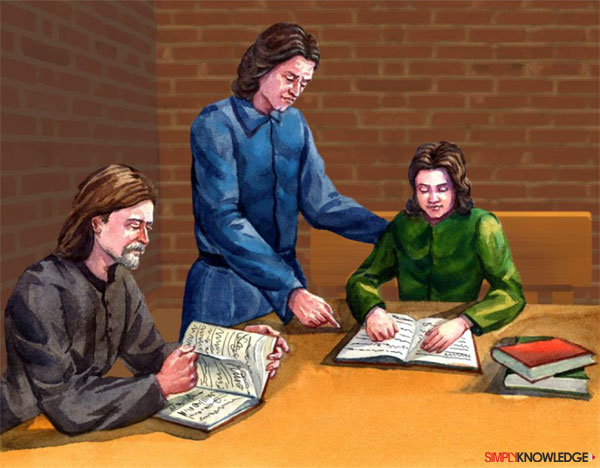
At the young age of 16, Theophrastus was enrolled at the University of Basel, where he received training under the famous Johann Trithemius of Spanheim who was a master in Alchemy, magic and Astrology. It was under Trithemius’ tutelage that Theophrastus developed inclination towards Occult Science. Trithemius was impressed by Theophrastus’ love for Occult Science and directed him to gain entry into the laboratory of Sigismund Fugger of Tyrol, who was not only a celebrated alchemist but also possessed valuable secrets of Occult Science.
Exactly how long Theophrastus studied Alchemy, Astrology and Occult Science under Sigismund Fugger is not known and so we move on to the next chapter of Theophrastus life.
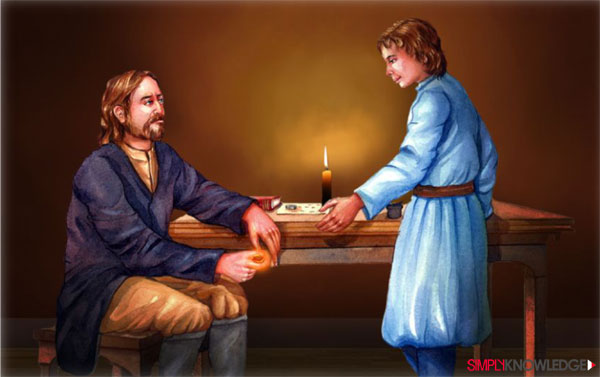
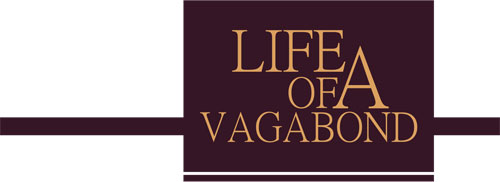
Life of a Vagabond
After his formal education under the supervision of learned bishops, Theophrastus decided to travel. He travelled widely to destinations like Germany, France, Netherland, Denmark, Sweden and Russia. He even visited India for a brief period and met saints and monks in the Tibet region. When he reached Italy, he received an opportunity to serve the Imperial Army and experienced many explosive situations. This period of globe-trotting can be called as the turning point of Theophrastus’ life as he came across many physicians, surgeons and alchemists who shared a similar passion for Occult Science like him.
During his stay in Italy, Theophrastus entered into physical relationships with several gypsies, fortune-tellers, midwives, barbers and shepherds, and although it may sound vulgar, he did so to gain knowledge from the act. He was always found in the company of vagabonds on the highways and at public lodges and inns, due to which he earned a bad name and was criticized by his narrow minded detractors. Theophrastus was often criticized for his passion for wandering but his critics did not realize that travelling was critical to acquire knowledge, which according to him could not be learnt in the comforts of a laboratory or a library. He strongly believed that knowledge cannot be confined within the boundaries of one country; it does not follow us but waits for us to go in search of it. According to Theophrastus, “Those who remain at home may live more comfortably, and grow richer than those who wander about; but I neither desire to live comfortably, nor do I wish to become rich. He who wants to study the books of nature must wander with his feet over its leaves.” Theophrastus recommended that every part of the world signifies a single page in the book of nature and all the pages taken collectively formed the book that reveals its richness and abundance.
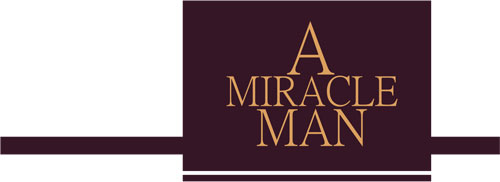
A Miracle Man
Theophrastus travelled extensively for a period of ten years, sometimes practicing his talents as a physician, or magician or an alchemist. At the age of 32, he returned to Germany where he acquired fame as a man with miraculous cures. He had surpassed all his colleagues with his superior medical skills and was termed as Dr. Miracle by the masses. Many patients, who had been termed as incurable by other renowned doctors, now turned to Theophrastus for treatment and became cured. Among the many patients who were cured by Theophrastus, were the eighteen princes who were pronounced to be incurable by leading doctors.
But what made Theophrastus different from others? Why were his medical skills considered to be superior to his colleagues? Did he possess some supernatural powers to cure the incurable or did he adopt a different strategy for treatment? To answer these questions, we have to analyze his skills as a physician, magician, astrologer and alchemist in detail. But first, we have to understand his in-depth views and explanations on the cosmic structure as a whole, mankind and the doctrine of holy spirits. It is rather difficult but not impossible to get a perfect understanding, using intuition, and an insight into the mental make-up of Theophrastus.

Study Of The Cosmic Structure- Cosmology
According to Theophrastus, the entire cosmos is created by God and we are his children. God is the constructor of the world, carpenter of the universe and the sculptor of all forms. All creations have taken place from four core elements, namely air, water, fire and earth. Theophrastus was of the view that man is composed of three forces namely, the Spirit, Soul and Matter. According to him spirit is living, and life is the spirit which unites together to produce all things.
Nature is that part of the universe which is created by God to essentially provide us a cushion to breathe easy. Thus, all living organisms in nature have to sympathize and live in harmony with each other. Theophrastus termed all the living creations of the constellation as Macrocosm and man as a Microcosm; both with one breath, one time, one fruit and above all, one authority. Man is dependent on nature for its very survival and nature is dependent on the state of mankind. According to Theophrastus, that part of science which can describe the principles governing the Macrocosm and Microcosm and the relationship between them is termed as ‘Astronomia’.
Theophrastus termed a part of Astronomia as magic, wherein he states that magic is a science used to discover the ideal relation or connection of the hidden things of our soul to our physical senses, just like the way the sun shines through a glass. Further, he explained that each organ of our body is in harmony with other parts. For example, there exists harmony between the heart and the lungs and between the stomach and the brain. He also established a connection between the stars and the plants and between plants and human body. Just like a magnetized bar of iron may produce magnetic effects on the other part of iron, leaving copper and brass unaffected, same way some medicinal plants may act as remedies to cure certain diseases.

Views On Mankind And The Holy Spirit
Theophrastus strongly believed that the constitution of man is based on seven principles which are stated below.
- The Physical or the elementary body, i.e. Sthool Sharira.
- The Mumia or the vital force, i.e. Jiva.
- The Astral body or the Sidereal Body, i.e. Linga Sharira.
- The Animal Soul or the Kama Rupa.
- The Human or Rational Soul, i.e. Karana Sharira Manas.
- The Spiritual Soul, i.e. Buddhi.
- The Spirit or the Divine Atma.
He has given a very comprehensive explanation with regard to all the seven principles constituting a man, in his work called, ‘Philosophia Sagax’. But the principle which needs to be mentioned here and which every human being is afraid is the ‘death of a man’. According to him, death is nothing but the end of the daily labour of man. Being a devout Christian, he strongly believed that every human being possesses the elements of earth and the earth is his mother. When he dies, his flesh transforms and mingles with earth. And perhaps referring to Christ he says, “Only the real man will be re-born at the day of the resurrection into another spiritual and glorified body”.
According to Theophrastus, after death, the physical body decomposes into dust. But a vital part of the principle stipulates, that which comprises the highest essence of life, passes into a higher state called, ‘Olympus Novvs, where they unite with their origin, the Mysterium Magnum, the essence of life or the Parabrahman (mentioned in the Vedas of Hindu scriptures). Theophrastus cautions that this fate is met by people who die a natural death but not for those who die prematurely either due to accidents or suicides. In such cases, the invisible residues of the human body remains in the state till death would have arrived naturally and according to the laws of nature. They remain in the earth’s sphere and are full of earthy passions and desires. Theophrastus calls them ‘Caballi Lemures’ and they often lurk in places where they have spent or resided during their lifetime.
People often believe that such spirits cannot be destroyed by sprinkling holy water or by burning incense and even arranging religious ceremonies for the purpose. According to Theophrastus all these have no effect on the spirit and the best way to keep evil spirits away is positive will power. If we stand by good and love the source of good we will never succumb to the evil powers of the force. If however, evil spirits causes severe depression to you then Theophrastus recommends wearing of red corals to ward off melancholy as they are stimulated by sun. A healthy mind is like a temple which cannot be invaded without the will of its priest. Minds that are pure and illuminated by the force of truth cannot be possessed by evil spirits.

A Medical Genius
According to Theophrastus every vital organ in the human body is in sympathy with certain principles in the universe. The heart is influenced by elements of the sun, the brain with the moon, the gall bladder with planet Mars, the lungs with Mercury, the liver with Jupiter, the kidneys with Venus and the spleen with Saturn. Accordingly, there are various plants and herbs which have a corresponding sympathy with these astral influences. Each herb or plant has to be plucked when the planet to which it is related rules the hour and its substance or the essence should be absorbed when it is fresh. Theophrastus has categorized each planet in conjunction with the respective plants.
Sun – Rosmarinus officinalis, Lavunda Officinalis and Melinda Officinalis for the treatment of acute inflammation, heart disease and rheumatism.
Moon - Thymus majorna, Ruta Graveolens and Helleborus niger for treating patients suffering from insanity, hysteria, and nervous diseases.
Mercury – Pulmonia Officinalis, Althaea Officinalis and Plantago laureola for the treatment of pneumonia and inflammations of mucous membrane.
Venus – Onosis Spinosa, Verbascum Thapsus and Apium Petroselinum for curing diseases of kidney and bladder.
Mars – Carduus Benedictus, Urticariadiocia, Erythraea Centaurium for fevers, eruptive fevers and diseases of violent nature.
Jupiter – Ruta Graveolens, Hepatica Nobilis, Cannabis Sativa for curing jaundice and other diseases related to liver.
Saturn – Chrysosplenium alternifolium, Scrophula Nodosa for the treatment of piles, hypochondria,etc.
Theophrastus criticized other physicians as he discovered that they did not pay any attention to the planetary positions and killed more patients as the medicine that may be effective at one time may be harmful at another depending on the prevailing astral influence.
Thus Theophrastus proved that planetary positions do not only directly effect upon the physical body of men, but on their essence which constitutes the elements of the universe as well. In simple words, he has repeatedly emphasized that the vital parts of our body are representative of invisible energy that are circulating in the whole system.

An Extraordinary Alchemist
Alchemy is an art that cannot be comprehended without spiritual knowledge and astrology cannot be understood without proper knowledge of mathematics and logic. Just as chemistry is the study of physical matters, alchemy deals with astral ideologies. Astronomy is the study of planets and stars and astrology deals with influences of these stars on man.
Theophrastus defined alchemy as an art in which the fire of nature i.e. the astral light is the main artist. According to him, a human being is composed of three elements namely Sulphur, Mercury and Salt. A person is healthy if these three elements maintain their proportion with respect to their quantity. But the moment any of these elements deviate from their correct proportion, disease strikes the human body. These three elements are not visible to the naked eye but are acted upon the fourth principle which is called life.
Theophrastus was critical of physicians who prescribed endless list of medicines without discovering the cause of the disease. Theophrastus has mentioned his valuable secret of Alchemy in his work called, ‘Tinctura Physica’ which is a Bible of Alchemy.
He confirmed that composition of pure metals produces a scintillating effect around us. Theophrastus was of the view that if we create a composition of seven metals in a desired proportion and at the proper time, then we will acquire a metal which will contain the qualities of all the seven metals. Theophrastus termed the metallic mixture as, “electrum”. The preparation of electrum magicum is quite a daunting task as each metal has to be in its purest form. The metal has to be prepared in the right proportion and during a specific conjunction of the various planets.
Many astonishing devices can be created from electrum such as amulets, magical finger rings, arm rings, bells and other things containing magical powers. According to Theophrastus’ calculations, magical mirrors can be created from the electrum magicum where you can peep into events of the past and the present, see your hidden enemies and long lost friends.

Theophrastus’Views On Astrology
Theophrastus was of the view that astrology is closely connected with magic, Medicine and Alchemy. He believed that each body attracts planetary influences when in harmony and repels the others. For this, man has to understand his own constitution to comprehend the influence of the astral influence which rules the sky.
Theophrastus did not approve of anyone calling him a professional astrologer who simply makes horoscopes. He understood the higher trait of Astrology by which the relation of Macrocosm and Microcosm are understood. According to him, “No one needs to care for the course of Saturn: it neither shortens nor lengthens the life of anybody”.
Often we grumble or are envious of other people’s success and riches and curse our own stars. But Theophrastus refutes such allegations and strongly emphasizes that stars are free for themselves and force nothing into us. It is actually the spirit of oneself that makes a man more appropriate than the others. At the same time he strongly condemned those ceremonies that attract spirits by saying that, “Whatever comes from the ‘spirits’ is sorcery.” According to Theophrastus, our body is created from elements, our soul from the star and the spirit comes from the almighty. Theophrastus refers to stars as not merely the physical bodies that exist in our solar system but the principles in the cosmos.
The sun and the moon attract something from our body and our body too attracts something from them as each body is in harmony with the astral influences of the heavenly bodies. This is evident from the use of talisman and amulets which produce an astral form on the bearer.
Man should obey the will of God as wisdom can be acquired from God. If this inner consciousness is awakened then the mysteries of nature will be easily comprehended by spiritual knowledge.

Magic Versus Sorcery
Theophrastus has clearly made remarkable demarcation between magic and sorcery. Magic causes illumination, light and is white in form, whereas sorcery is concerned with darkness and is black in form. Magic is the study of supernatural powers of nature and an individual must possess complete knowledge of natural science to acquire the skills of magic.
Strong imaginary power and enormous faith are the two vital ingredients to construct the temple of magic. By imaginary power, Theophrastus refers to creative power of a man. According to Theophrastus, women possess stronger imaginary power because of their compassionate nature and stronger love and hate relations as compared to men.
Strong faith has fantastic powers and we human beings do not realize it. An evil spirit, like a spear may try hard to pierce our body and cause some disease but if our faith in the supreme power of God is strong, it will act as an armour and protect us. Diseases can be effectively cured if men understand the power of faith and not superstition. The secret behind Theophrastus magical cure was his enormous faith in the power of God and his belief that it is God who acts through him. Theophrastus also cautioned that those physicians who cure diseases only with a belief that he will be able to overcome it, believe in superstition, but physicians who realize that they possess the power to perform and are aware of his power will perform what is called, ‘a miracle.’

Theological Explanations
According to Theophrastus, strong reasoning power is a prerequisite to be a proficient philosopher and a true theosophist must possess the knowledge to perceive spiritual powers. To obtain spiritual power, we first have to realize what is good and what is evil and without knowing evil we will never be able to realize what is good. The moment we understand what is good, it becomes a reality and we attain the highest degree of happiness, as God resides within the spirit of man.
Theophrastus also believed that it is possible for us to communicate with the spirit of the deceased by keeping his or her picture under our head with a question you wish to ask. The answer will be interpreted in our powerful dreams. But this experiment should only be initiated if you have undeterred and enormous faith in the spirit, because it is our faith which will strike communication with the spirit.
According to Theophrastus, man belongs to either of two spirits - animal spirit or human spirit. A person who belongs to the animal spirit will behave and live like an animal during his life and will be an animal after he dies, but a man with a human spirit will always remain human.
Another important aspect of Theophrastus’ theological work was his study of medicinal herbs which serve as an Elixir of Life. Theophrastus believed that a person who is born has to die, but there is nothing wrong in protecting himself from evil astral influences, accidents, epidemics and old age. Theophrastus strongly recommended a remedy called ‘Primum Ens’ for prolonging the age of human being. The Primum Ens Melissae is prepared by a unique concoction of pure carbonate of potash, a plant called Melissa, and alcohol.
Finally, one of the most secretive and valuable remedy which Theophrastus discovered was, ‘Zenexton’, a unique tablet made by grinding live toads, roots of certain medicinal herbs, pearls, coral, saffron, musk and amber and many other elements. When the mixture dries up it has be to cut in to tablets when the moon is in the sign of Scorpion. The tablet has to be wrapped in a red silk cloth and to be worn as an amulet around the neck to ward off evil astral influences, diseases, poison and black magic.
Thus from the above, we have an insight into the secret of Theophrastus’ success in the field of Medicine, surgery, magic, Alchemy and Occult Science. But as Theophrastus rose to fame he was subject to professional envy as other physicians lacked the intelligence and foresight of Theophrastus. He was also kind enough to treat the poor without charging any fees, an act which was met with much resentment amongst his colleagues. But what an irony, many a times his noble act was not acknowledged and often ridiculed. Once a rich wealthy, Count Philippus of Baden, who was termed as incurable by celebrated physicians, was cured by Theophrastus in short time. But instead of being rewarded for his generosity, he was shown the door for reasons unknown. This gave his opposition an opportunity to rejoice, but that did not discourage Theophrastus and he continued to perform his wonderful cures.

Professor Of Medicine
As Theophrastus enjoyed travelling a lot, he visited Basel and was appointed as Professor of Medicine and Surgery by the city council for which he received a handsome salary. He was only 34 years old and unlike his older colleagues who merely lectured on works written by other medical healers like Hippocrates and Avicenna, Theophrastus designed his own course material. The principles he imparted his students were of his own and hence his popularity among them increased. Furthermore, he gave lectures in German instead of Latin which again was not favoured by his colleagues.
As a part of the office of the city council, he voluntarily offered his services to supervise the conduct of the compounders; checking whether they were aware of their business and whether they had stock of genuine drugs. As a result he enabled to prevent them from inflating the prices of essential drugs. Theophrastus would often admonish other physicians to stop digging gold and instead pay attention to the search of new medicines.

Fame Attracts Envy
No sooner a person gains fame and popularity, his list of foes grow endlessly. The city’s druggists began to hate Theophrastus for his measures to control prices of essential drugs. Other physicians and professors too grew jealous of his increasing popularity and success in curing diseases. They all joined together and demanded an explanation from the University for hiring Theophrastus’ services. These envious people declared Theophrastus as a stranger, a quack and requested the university to probe whether Theophrastus was a ‘real doctor’ or not.
In order to prevent events from turning worse, Theophrastus resigned from the University and left Basel in the year 1528.
From Basel, Theophrastus arrived at Colmar and later on visited Esslingen and Nuremberg. In Nuremberg too, physicians called Theophrastus a quack and an imposter. Tired of being taunted a quack on numerous occasions, Theophrastus decided to confront the situation. He requested the City Council to send some patients suffering from incurable diseases. The City Council obliged and sent a few patients suffering from elephantiasis which Theophrastus cured successfully in a very short span of time and free of cost.

Success Meets Death
In spite of achieving success in Nuremberg, Theophrastus efforts and services were drastically ignored. He continued his life as a vagabond wandering from places to place. He visited places like Noerdlingen in the year 1530 followed by Munich, Regensburg, Amber and Meran. When he was 37 years old, he visited St. Gall and then after few years proceeded to Zurich. All this while, Theophrastus gathered a few disciples who were impressed by his cures and desired to acquire his secrets and the art of making medicines.
As he continued with his passion of travelling, Theophrastus reached Salzburg where the Duke of Ernst of Bavaria requested him to join his court as a physician. Finally, Theophrastus acquired a position where his medical skills were recognized and obtained widespread fame. However, fate was not in favour of Theophrastus. This joyous period of richness and fame ended tragically as Theophrastus succumbed to a mysterious death in a small Inn called, ‘White House’ on 24th September, 1541. He was only 48 years old. His remains were buried the next day in the grave of St. Sebastian.
There is not much evidence to prove that Theophrastus died a natural death or was murdered. Primary investigations revealed that Theophrastus was hit by a blunt object on his head by some anti-social elements hired by local physicians which eventually led to his death. One German physician Dr. Samuel Thomas von Soemmering, who examined the body of Theophrastus, discovered a fracture on the skull which was then believed to be the cause of death.
Theophrastus’ bones were unearthed in the year 1527 and entombed in the Chapel of St. Philippi Neri, in the vicinity of the St. Sebastian where his monument proudly stands today.

Rich Legacy
Theophrastus himself was not an avid reader or a writer, a fact which is corroborated by his disciples and followers. He would only dictate his work to them without utilizing any manuscripts and books. According to him, “Reading never made a physician. Medicine is an art and requires practice.” Few works of his were published during his lifetime; namely, ‘De Gradibuset Compostionibus Receptorum et Naturalium’ published in the year 1526 and ‘Chirurgia Magna’ published at Ulm in the year 1536. To display their affection and gratitude to their master Theophrastus, his disciples, Gerhard Dorn and Martin Ruland, composed a dictionary called ‘Lexicon Alchemicum’ which comprises unique terms used by Theophrastus.
Theophrastus was quite discreet when it came to sharing his valuable secrets as he feared it may get into the wrong hands. One of his disciples, Johannes Oprimus who served Theophrastus for three years was upset with Theophrastus’ secretive nature and connived with his enemies. However, after Theophrastus’ death, Oprimus turned remorseful and repented for his indiscreet behaviour.
Theophrastus did not leave behind any material goods, except his work which displays his abundant knowledge of Medicine. Even when he died, the only things found in his possession were a copy of the Bible, a Biblical commentary on the Bible and a book written on Medicine.
Theophrastus was among those few who treated patients as his textbook and the sickbed as his course of study. His passion for travelling was instrumental in acquiring knowledge and he found his best teachers among vagabonds, gypsies, barbers, midwives and executioners. Phenomenas of nature were of more value to him and his love for God an essence for survival. If you have read and understood this biography you will be amazed to discover that Theophrastus’ doctrines are based on his study of Bible and bear a striking resemblance to the Vedas.
The main reason why Theophrastus’ principles and work are not implemented today is that his system has not been completely understood by our modern medical practitioners. Hope a time will come when his fundamentals will be understood and a breakthrough will be achieved in the field of Medical Science.
Next Biography





